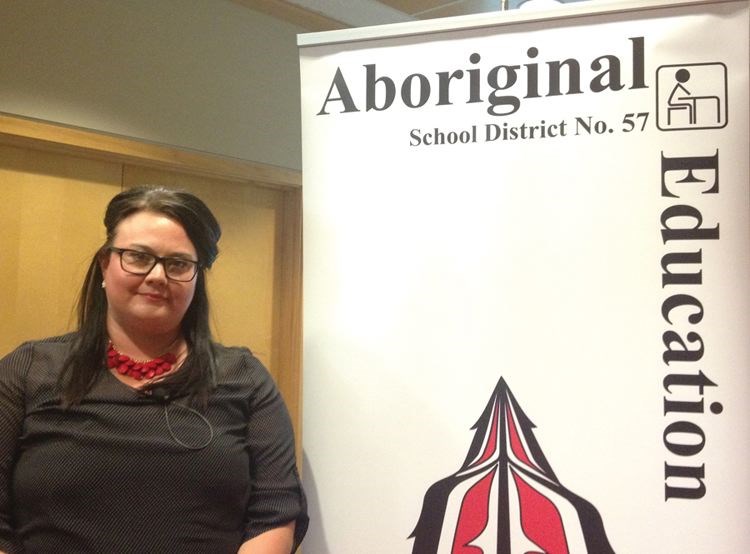A new documentary about aboriginal education in School District 57 places Prince George and its surrounding communities as an example for the rest of the country.
It's a story about the challenges that face aboriginal learners, the work being done to address a shocking graduation gap and the hope district workers have that their work is making a difference.
Crow Brings A Message is a production of the district's aboriginal education department and reflects the work that it has done over the last five years.
"That was an act of love," aboriginal education manager Shelly Niemi told the audience. It aired at a private showing Monday night at UNCBC's Canfor Theatre and will be made public in the fall.
"We believe this documentary shows locally, provincially, nationally what aboriginal excellence looks like."
When Niemi took on her role five years ago, the department had 32 staff.
Today, that number sits at just over 100.
It's not a shift in budget that brought that change - provincial funding is tied to the number of self-identified aboriginal students in school - but a change of focus to human resources.
Niemi said she thinks Prince George can be a model for other districts, but recognizes the graduation gap remains large.
This district has almost 3,300 self-identified aboriginal students representing almost a third of the population.
Last year, the aboriginal graduation rate was 48.8 per cent compared to 81 per cent of non-aboriginal students.
"We're going to get there. I know it," said Niemi, who spoke of the "inherent right" of aboriginal students to education and one that builds off the success of elders.
The video featured interviews, led by an aboriginal student, with principals, teachers, elders, superintendent Brian Pepper and more. It also featured the story of Victoria Alexander, a Prince George secondary school graduate.
Her education journey has been a challenging one, she told the cameras, but when she started a land-based education program that all changed.
"We need to be equals," she said, and places like the aboriginal-focused Eagle Centre at PGSS helped her realize she deserved to be there and could graduate.
"I know that my siblings will too," Alexander said.
Niemi also speaks from that experience. She relayed to the audience how she bounced from school to school and never felt she could "walk with spirit and ceremony in the hallways."
"I believe schools are starting to create the space and give permission for that to occur," said Niemi.
Now she is completing a Masters degree and plans to pursue a PhD as well.
She spoke of cultural safety and having trauma-informed classes that understand times of transition between grades - and even homes - are when students are most vulnerable.
Last week the province announced it would devote one professional development day next year to aboriginal education for teachers - a move Niemi said was a positive step.
"We do that every day," she said, also referencing a five-part "culture 101" training series open to all teachers in the district.
In the documentary superintendent Brian Pepper spoke of making learning relevant to all aboriginal students.
"We have to change as individual teachers."
Canada's residential schools, Pepper said, was a "system (that) robbed students of culture and language."
That sentiment was echoed by one elder who spoke of his time at a residential school.
"It was more indoctrination, brainwashing us to not be who we are."
The documentary touched on themes of decolonizing education, education equity and cultural integration.
Ultimately, Niemi credited collaboration and partnerships for transforming the system, one where the aboriginal education department works seamlessly within schools rather than its own silo - something she said they're already doing.
"We're going to do it together."



